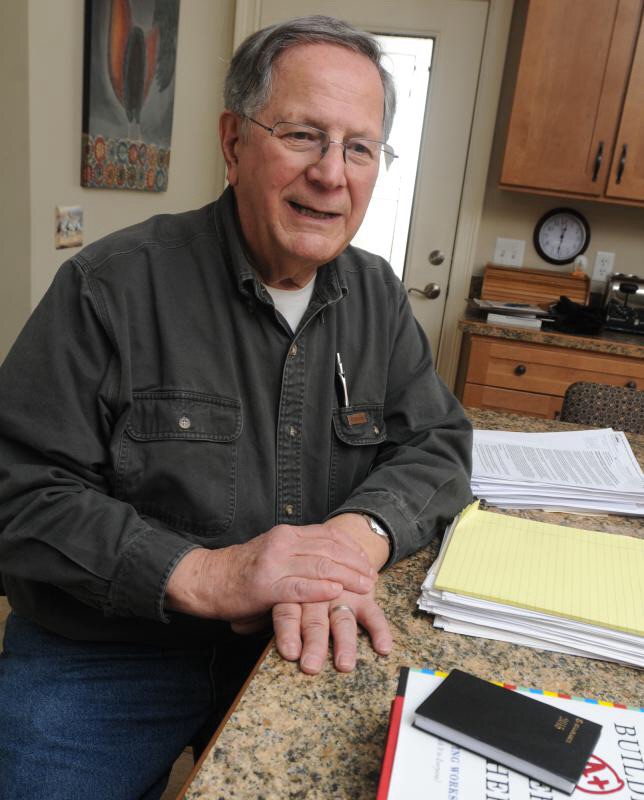By DAN CROWLEY
Staff Writer
Daily Hampshire Gazette
NORTHAMPTON — A Hampshire Superior Court judge is expected to rule within 30 days on whether state education officials must release a list of Massachusetts schools that participated in an international student assessment study.
The public records case brought by James Palermo, 74, of Southampton, against the state Department of Elementary and Secondary Education, was taken under advisement by Judge Bertha D. Josephson after hearing attorneys’ arguments Thursday.
“You’ve given me a lot to think about and a lot of documentation,” Josephson said, adding that she would render a decision within a month.
Palermo has been trying since April 2014 to learn the names of schools and districts that participated in the 2012 Program for International Student Assessment (PISA) testing. He sought the information as part of research he is conducting on charter schools and after the education department issued a 2013 press release announcing that Massachusetts students exceeded the national average and scored among the top performing education systems in the world in reading, mathematics and science literacy.
Palermo wanted to know more about the 49 Massachusetts public schools that participated in the PISA test. Because the test results can be used to help craft education policy, he believes it should be accessible to the public, so people can evaluate data on which officials base their actions.
“Frankly, I just think we’re being bamboozled,” Palermo said outside the courtroom Thursday. “All I want to know is the information, so I can be objective.”
The case reached court after education officials declined to release the information to Palermo, despite twice being ordered to do so by state Supervisor of Records Shawn A. Williams, who earlier ruled on two appeals in the case.
Palermo’s case was taken up by Northampton attorneys Thomas A. Miranda and Justin P. Goldberg of Miranda Law Offices after the Gazette reported on the case.
Under the state’s Public Records Law, the superior courts and state Supreme Judicial Court have jurisdiction to order a public records custodian to comply with an administrative order to release information, in this case, from Williams.
Palermo’s complaint names the state Department of Elementary and Secondary Education, Commissioner Mitchell D. Chester and Deputy Commissioner Jeffrey R. Wulfson as defendants.
For their part, state education officials have refused to give Palermo the information, arguing that the U.S. Department of Education’s National Center for Education Statistics, which coordinates participation in PISA, does not permit them to release the names of schools and districts.
They also cite statutory exemptions in the state’s Public Records Law and a confidentiality section of the federal Education Science Reform Act of 2002 that states, in part, “The Director shall ensure that all individually identifiable information about students, their academic achievements, their families, and information with respect to individual schools shall remain confidential.”
“There’s no other way to read that,” Assistant Attorney General Andrew M. Batchelor said in arguing the state’s case.
Goldberg, who represents Palermo, argued otherwise, saying that none of the confidentiality standards in the federal law refers in any way to the names of schools. He noted that information about some schools’ participation in PISA testing is already publicly known and widely available on the Internet — and that the state’s supervisor of records has ruled that the information Palermo seeks is a public record.
“Not only did he (Williams) do this once, he did it twice,” Goldberg told the judge. “There’s literally schools everywhere saying, ‘We participated.’?”
In remarks outside the courtroom, Palermo also cited other examples where the identification of schools using the PISA exam is already publicly known, including school committees and districts that have decided in open sessions whether to participate in the tests and students’ own families’ and educators’ knowledge that students are taking the test.
“If you’re living in a school district where your student is taking a PISA test, wouldn’t you know about it?” Palermo asked.
Dan Crowley can be reached at [email protected].


